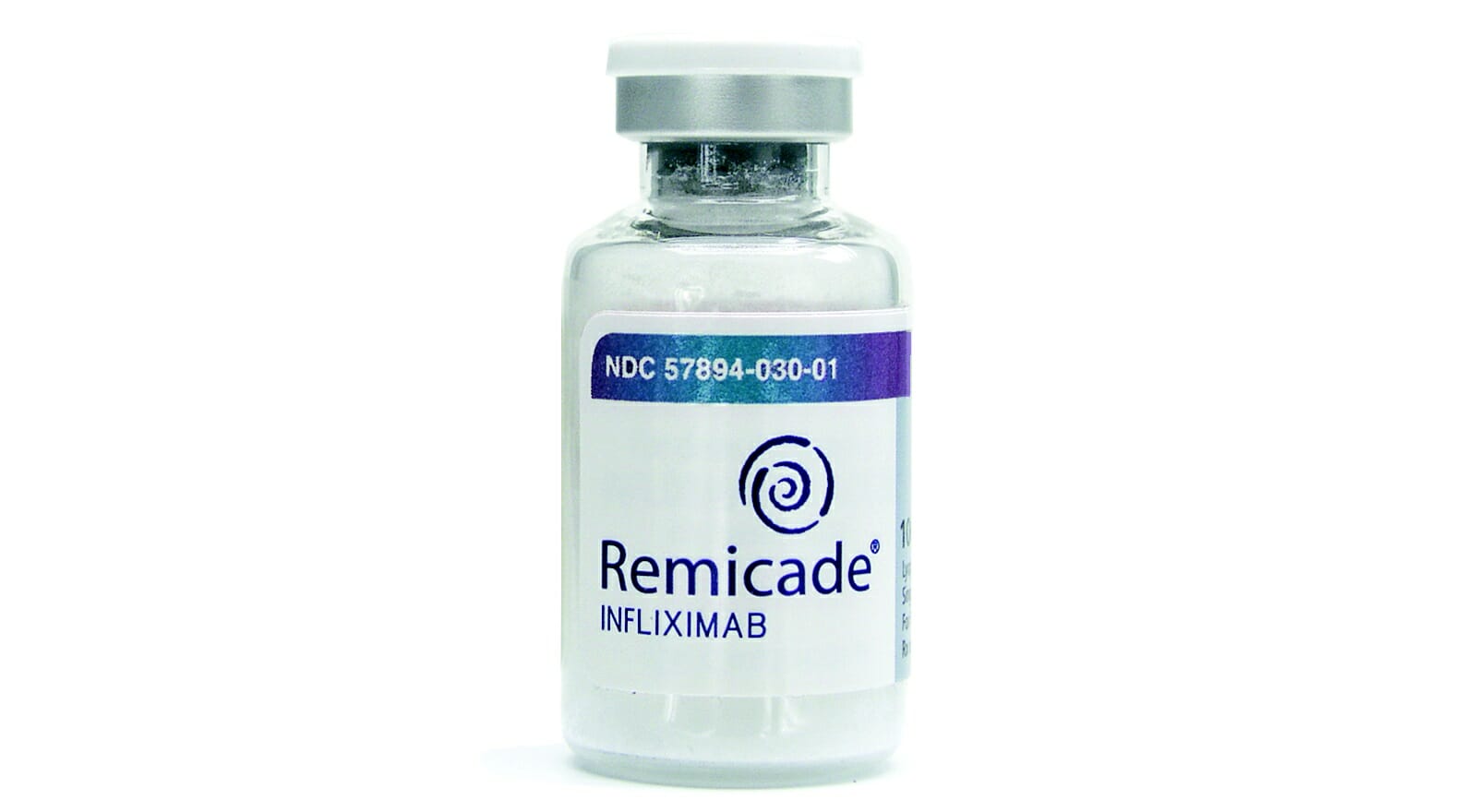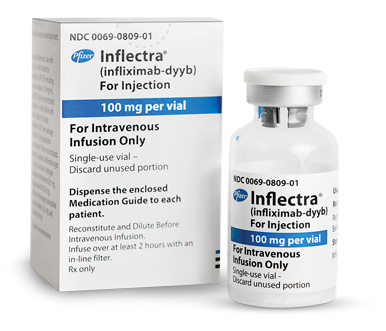
As more biosimilars enter the market, makers of these complex, copycat drugs have struggled to compete with their branded equivalents. But an antitrust action involving Pfizer and Johnson & Johnson, still in its early stages, could change that.
Pfizer alleges J&J brokered exclusive — and anti-competitive — contracts with insurers and providers to prioritize its immunosuppressant drug Remicade over Pfizer’s biosimilar Inflectra. A Pennsylvania judge
recently denied J&J’s motion to dismiss the lawsuit.
An eventual ruling could have serious implications for the biosimilar market. Credit Suisse analyst Vamil Divan said a verdict in Pfizer’s favor could force changes to long-term exclusive contracts and, in turn, ease market entry for biosimilars.
“Until now the biosimilars have had a tough time breaking in and being financially attractive to their customers,” he said. “By the end, you’d have to think that biosimilars as they enter the market are going to be much more attractive and much more successful. I think it could really shake up the market quite dramatically.”
Pfizer claims that J&J’s contracts with major insurers and providers have effectively blocked Inflectra’s path to market. As part of the contracts, some insurers have agreed not to cover biosimilars like Inflectra. Others have agreed to “fail-first” clauses requiring patients to try brand-name products and fail before using an alternative. Pfizer also claims that J&J has said it will withhold certain rebates and discounts if insurers did not offer Remicade exclusively.
A J&J spokesperson said in a statement that the lawsuit is “without merit.” The spokesperson added that the rebates and contracting were part of the company’s efforts to ensure access and keep Remicade affordable.
“We stand by our contracts and will continue competing on value and price to help ensure patients have affordable access to Remicade,” the statement said. “In contracting for Remicade, payers and providers have demanded, and we have provided, aggressive discounts. Since we are competing vigorously, healthcare system costs will go down.”
Such contracts are not unusual, Divan said, adding that the court will need to decide whether J&J’s contracts were especially anti-competitive (as opposed to normal business tactics).
“It’s actually very common that these companies are all trying to secure contracts and access for their products above other potential competitors,” he said. “[The case] will come down to whether [the tactics] were especially egregious or especially restrictive.”
Remicade’s sales have been falling since before Inflectra’s approval, beginning when the drug went off-patent in Europe in 2014. In
the second quarter of 2018, Remicade’s sales fell 13% in the U.S., though it still brought in a hefty $918 million.
By comparison, Inflectra generated $63 million in U.S. sales in the
second quarter. But Inflectra is driving Pfizer’s growth in the biosimilar realm – especially in Europe, where it is marketed as Remsima.
Biosimilars differ from generics in several ways. Generics are exact copies of a chemically synthesized brand drug. Biosimilars are similar to, but not exact replicas of, branded biologics, which are drugs made from a living organism.
This makes biosimilars more difficult to make and get approved. The FDA has cleared some pathways for biosimilars in recent years, making concessions
to allow minor but “no clinically meaningful differences” from the approved reference drug.
The first biosimilar was approved by the FDA in March 2015. There are 12 biosimilars on the market today.
So the Remicade lawsuit may be a deciding factor in how successful future biosimilars are, setting a precedent for how far contracts and rebates can go before they face antitrust litigation.

“Patients deserve greater choice and improved access to important, lower cost therapeutic options,” the Pfizer spokesperson said. “As the first antitrust challenge to exclusionary tactics designed to prevent competition from a biosimilar, this case will be a bellwether for the success of Congress’s biosimilars initiative as embodied in the [Biologics Price Competition and Innovation Act].”
The
biologics act of 2009 was Congress’s first foray into clearing pathways for biosimilars and setting standards for the market. Since then, the FDA has also issued
eight industry guidance documents to help move biosimilar approval along.
The Trump administration is also banking on biosimilars to help control drug prices. The administration’s drug pricing blueprint mentions promoting more biosimilars as a way to increase competition for branded drugs and, potentially, drive prices down.
Divan agrees that biosimilars have potential to help the drug market, both by helping move older drugs out of the way for new treatments and by increasing competition.
“It’s important to have a healthy biosimilar market to help take away some of the older products,” he explained. “Then [drugmakers] bring a new innovation and get rewarded with that. There’s a little bit of an equilibrium that’s manageable between biosimilars and new products.”
He predicts that the biosimilar market will start to pick up over the next one to two years. Efforts from government coupled with more blockbuster biologics going off-patent are setting the stage for the biosimilar market to grow.
One of these biologics is AbbVie’s immunosuppressive blockbuster, Humira, which is expected to go off-patent in 2023.
“There’s a concerted effort to try and fix this problem and fix it now,” Divan said. “There are several popular products going biosimilar and Humira is the single biggest one. They want to make sure the market’s ready for that. I feel like there is an emphasis that we have to make sure that biosimilar Humiras are successful.”





